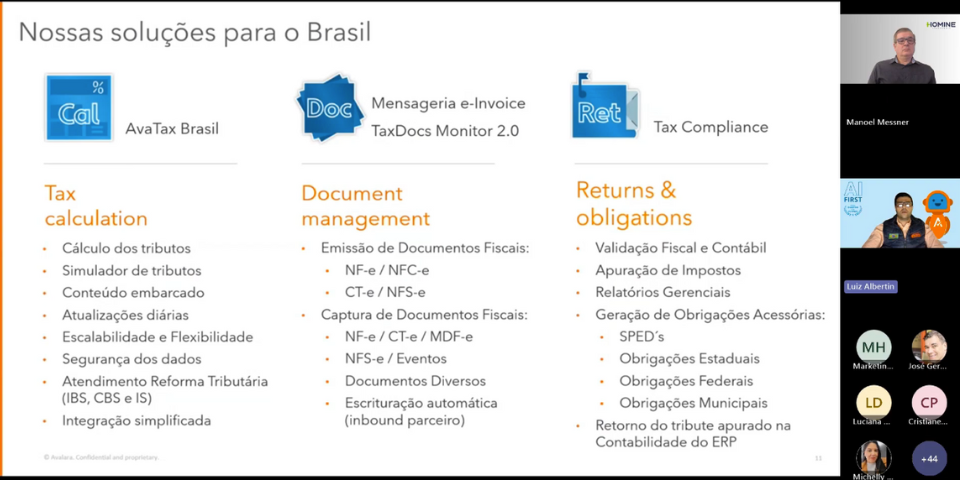
Technical Note 2019.001 brings new rules for validating NF-e and NFC-e
May 22, 2019
What is the secret to innovate in the IT market?
June 19, 2019No one doubts: SAP S/4 Hana is here to stay. ERP offers 100% cloud data environment, process information faster due to technology in-memory and its new interface, SAP Fiori, is intuitive and simple, therefore easier to configure, learn and use.
SAP S/4 Hana is accessible from anywhere, via an app, through which all types of transactions are carried out. The platform is also more cost-effective, as cloud processing greatly reduces investments in hardware, reducing fixed costs and expenses. In addition, the digital core of S/4 Hana integrates all the “ends” of the business in real time – customers, suppliers and people –, streamlining decisions and information sharing.
Given all this, the question arises: do I need to migrate my company's ERP version to SAP S/4 Hana as soon as possible?
Easy there!
According to Chief Technology Officer (CTO) of Homine, Alfredo Menin, the decision to migrate to SAP S/4 Hana, or to any other ERP, depends, above all, on a prior and careful analysis of the company's needs, its IT environment, business objectives, among other variables.
However, it is already possible to observe movements in the IT market and outline analyzes regarding the implementation of SAP S/4 Hana in companies, especially with regard to its adherence to different company sizes. Below, we list some analysis scenarios.
Hana in small and medium-sized companies
The SME segment is likely to benefit the most from the implementation of SAP S/4 Hana. “It's a fast, versatile ERP, with great cost-effectiveness and great cloud processing capacity, qualities that contribute to the competitiveness and performance of small and medium-sized businesses”, highlights Homine's CTO.
SAP S/4 Hana reduces the fleet of hardware of the company and is scalable, that is, it provides more storage space and inserts new users in the system, if the company requests it. Add to that the ability to process large volumes of data in less time, making the solution lighter and more agile. “It is a less expensive solution and allows for a more flexible and integrated operation, an ideal scenario for SMEs”, adds Menin.
SMEs have the financial structure to implement S/4 Hana. Small businesses have an annual revenue of up to R$ 4.8 million; and medium-sized ones, up to R$ 300 million. Due to the current economic situation in Brazil, the adoption of SAP S/4 Hana by SMEs requires solid financial planning linked to a realistic implementation schedule, thus avoiding financial and operational setbacks.
Hybrid alternative for large companies
With regard to large corporations, the rules of compliance can be a challenge to the implementation of SAP S/4 Hana, since the company's data would be stored in the cloud, that is, outside its domains, which is still viewed with suspicion by the governance of many companies.
“An alternative is for the company to create its own cloud structure, or cloud, within which S/4 Hana can operate without sharing data with third parties; It's a big investment in hardware and personal, but possible to be carried out in corporations with great financial capacity”, evaluates Menin.
According to the CTO, around 90% of Brazilian companies and many international organizations have opted, in turn, for the adoption of a hybrid model – the EHP8, which is the SAP ECC version with the Hana memory concept. This means maintaining the structure of hardware company and add processing capacity to the system (more memory). The result is better ERP performance and agility.
“It is important to emphasize that this transition to the hybrid model requires a careful project to update the system, after all, new functionalities, registrations and improvements will be implemented that are not simple and require careful planning to avoid failures and inefficiencies”, analyzes the CTO of homine.
Also according to Menin, corporations that operate in Latin America, whose headquarters are abroad (Europe and the United States, for example), and that have recently migrated to the hybrid version, need to implement adjustments to adapt their systems to the Brazilian tax situation. . “Without a doubt, the tax part has always been and will be the challenge of any ERP in Brazil, regardless of its version”, he concludes.




